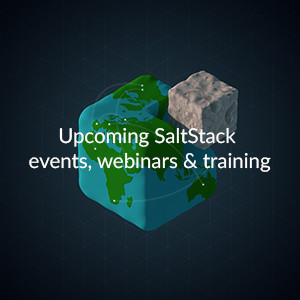salt.cloud.clouds.vsphere¶
vSphere Cloud Module¶
New in version 2014.7.0.
The vSphere cloud module is used to control access to VMWare vSphere.
| depends: |
|
|---|
Use of this module only requires a URL, username and password. Set up the cloud configuration at:
/etc/salt/cloud.providers or /etc/salt/cloud.providers.d/vsphere.conf:
my-vsphere-config:
provider: vsphere
user: myuser
password: verybadpass
url: 'https://10.1.1.1:443'
- folder: Name of the folder that will contain the new VM. If not set, the VM will
- be added to the folder the original VM belongs to.
- resourcepool: MOR of the resourcepool to be used for the new vm. If not set, it
- uses the same resourcepool than the original vm.
- datastore: MOR of the datastore where the virtual machine should be located. If
- not specified, the current datastore is used.
- host: MOR of the host where the virtual machine should be registered.
- IF not specified:
- if resourcepool is not specified, current host is used.
- if resourcepool is specified, and the target pool represents a stand-alone host, the host is used.
- if resourcepool is specified, and the target pool represents a DRS-enabled cluster, a host selected by DRS is used.
- if resourcepool is specified and the target pool represents a cluster without DRS enabled, an InvalidArgument exception will be thrown.
- template: Specifies whether or not the new virtual machine should be marked as a
- template. Default is False.
-
salt.cloud.clouds.vsphere.avail_images()¶ Return a dict of all available VM images on the cloud provider.
-
salt.cloud.clouds.vsphere.avail_locations()¶ Return a dict of all available VM locations on the cloud provider with relevant data
-
salt.cloud.clouds.vsphere.create(vm_)¶ Create a single VM from a data dict
-
salt.cloud.clouds.vsphere.destroy(name, call=None)¶ Destroy a node.
CLI Example:
salt-cloud --destroy mymachine
-
salt.cloud.clouds.vsphere.get_configured_provider()¶ Return the first configured instance.
-
salt.cloud.clouds.vsphere.get_conn()¶ Return a conn object for the passed VM data
-
salt.cloud.clouds.vsphere.list_clusters(kwargs=None, call=None)¶ List the clusters for this VMware environment
-
salt.cloud.clouds.vsphere.list_datacenters(kwargs=None, call=None)¶ List the data centers for this VMware environment
-
salt.cloud.clouds.vsphere.list_datastores(kwargs=None, call=None)¶ List the datastores for this VMware environment
-
salt.cloud.clouds.vsphere.list_folders(kwargs=None, call=None)¶ List the folders for this VMWare environment
-
salt.cloud.clouds.vsphere.list_hosts(kwargs=None, call=None)¶ List the hosts for this VMware environment
-
salt.cloud.clouds.vsphere.list_nodes()¶ Return a list of the VMs that are on the provider
-
salt.cloud.clouds.vsphere.list_nodes_full()¶ Return a list of the VMs that are on the provider
-
salt.cloud.clouds.vsphere.list_nodes_min()¶ Return a list of the nodes in the provider, with no details
-
salt.cloud.clouds.vsphere.list_nodes_select()¶ Return a list of the VMs that are on the provider, with select fields
-
salt.cloud.clouds.vsphere.list_resourcepools(kwargs=None, call=None)¶ List the hosts for this VMware environment
-
salt.cloud.clouds.vsphere.script(vm_)¶ Return the script deployment object
-
salt.cloud.clouds.vsphere.show_instance(name, call=None)¶ Show the details from vSphere concerning a guest

